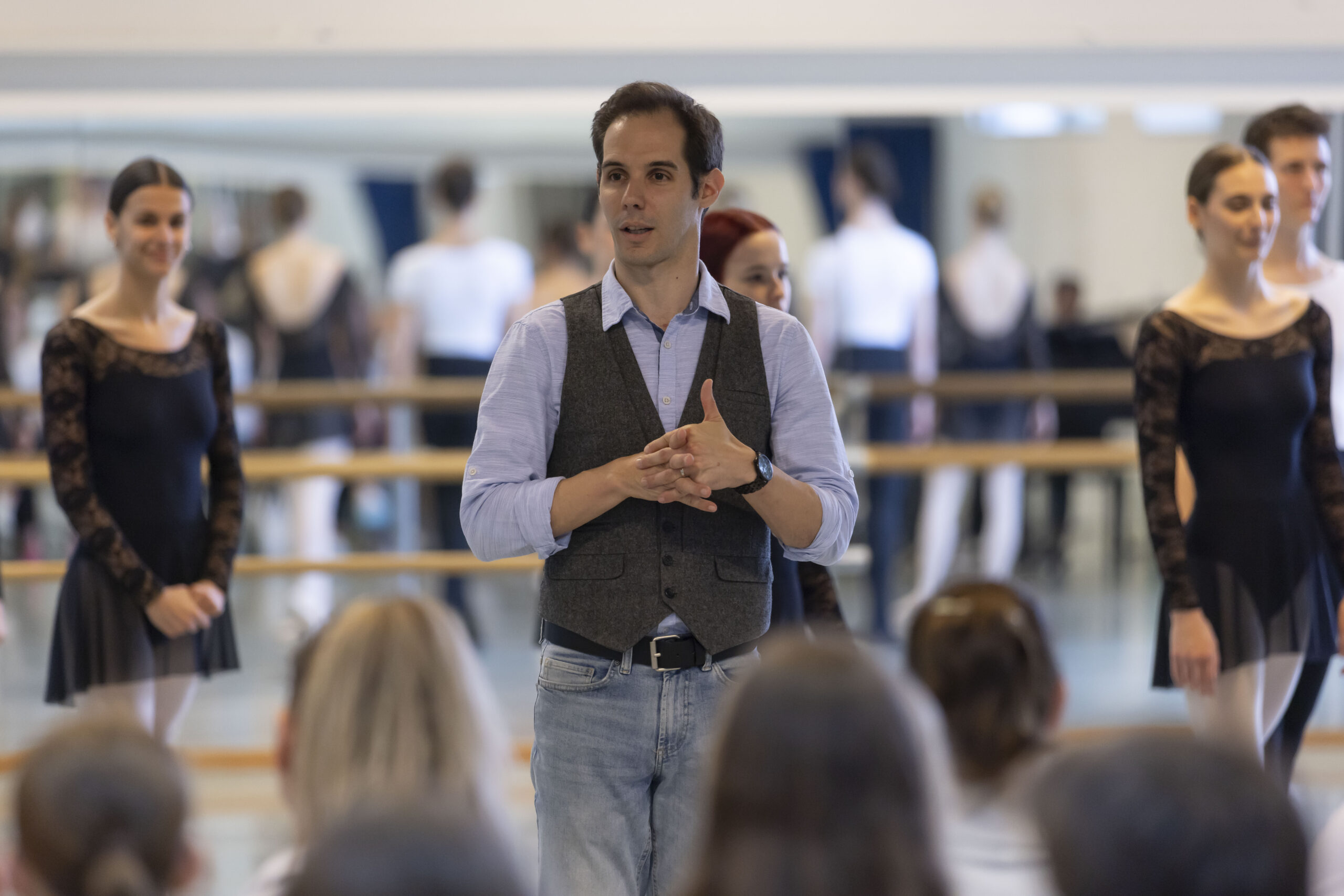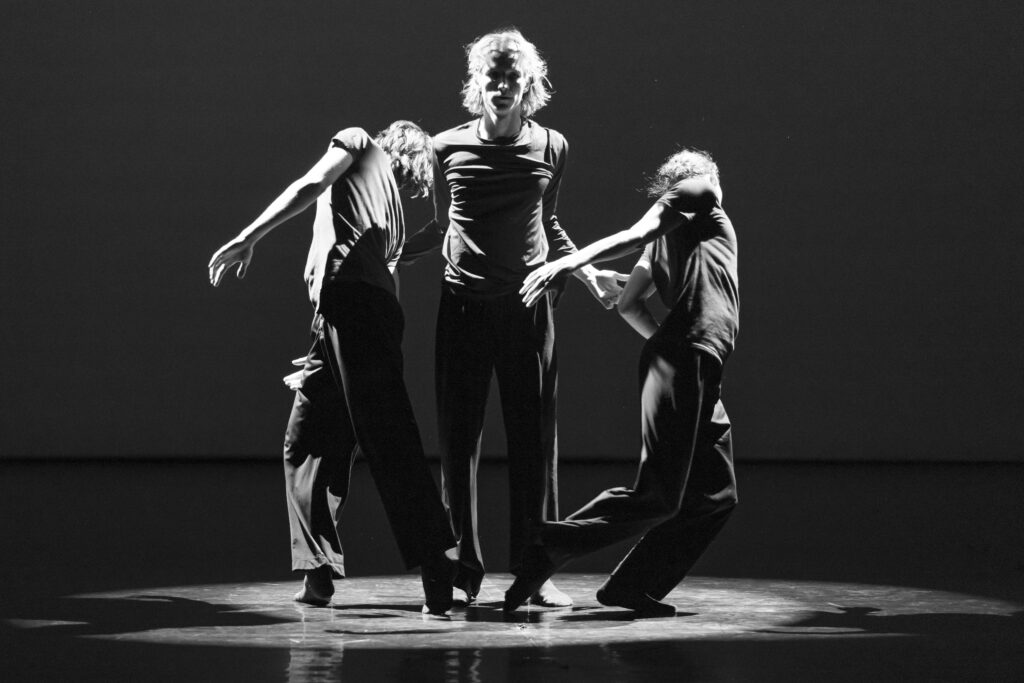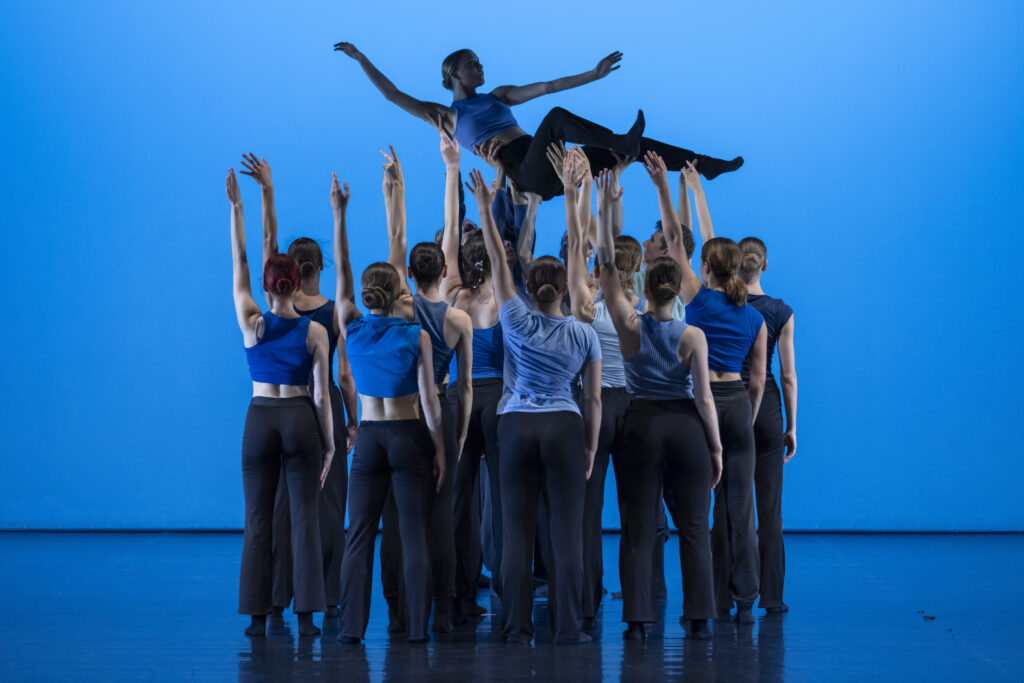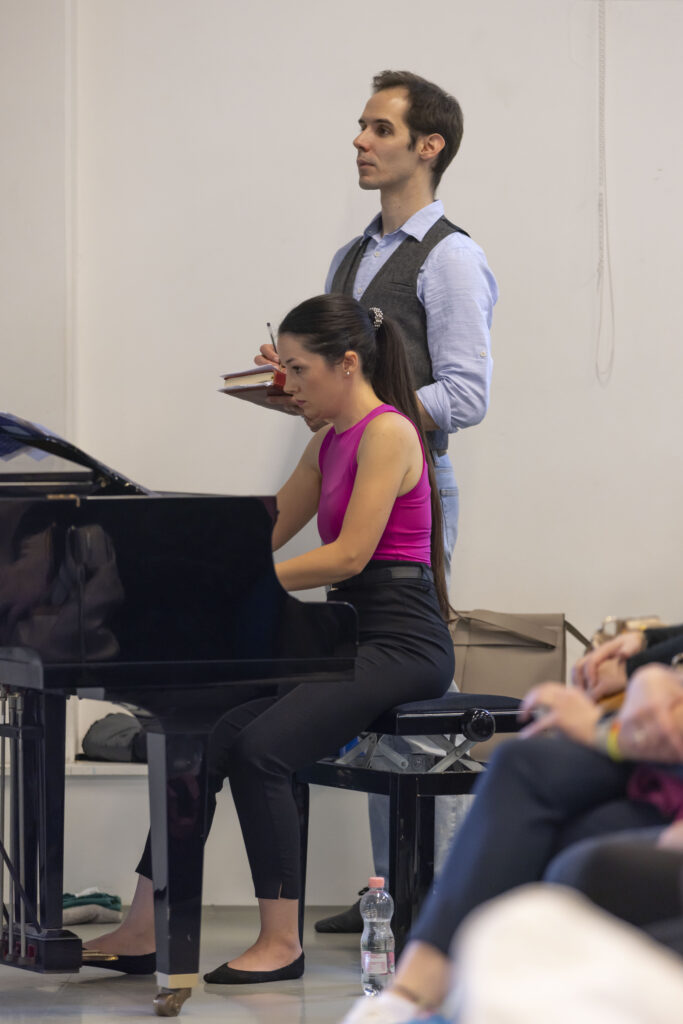
Tamás Csizmadia has been working as a ballet master at the Hungarian Dance University for ten years. He believes that with confidence, diligence and a little luck you can get anywhere from anywhere. His ars poetica is: “It’s my job to open the doors, but my students decide which ones they enter.” This applies this school year mainly to the seventeen students in the third graduating class of what he calls Sunny Dance Company.
You have worked as a ballet master at the Hungarian Dance University for almost ten years. Can you remember back to how it started?
I was still studying for my master’s degree and actively dancing when my former master, György Szakály, the rector of the university at the time, offered me a job as an assistant. It used to be common practice for young ballet master candidates not to be given their own class straight away, but to first study under the guidence of an experienced master. Something similar happened to me. I enjoyed that year very much because I didn’t have so much responsibility on my shoulders right away, at first, I just had to watch and learn alongside my master. Over time, I was able to hold warm-up exercises, rehearsals, substitute for different classes, and I was given more and more tasks. A year later, when I got my diploma as a ballet master, I also got my first class.
What happened next?
I started to find my own way. I worked for two years with the first modern class. I was able to lead them through to the qualification exam, which was a huge honour and confidence on the one hand with so little experience behind me, and on the other hand a big challenge I wanted to overcome. I (also) learned a lot from Katalin Lőrinc during that period, as she took me on as her “squire” as the leader of the year. She listened to me and asked for my opinion on matters concerning the year group, and helped, supported and encouraged me saying that I was up to the task. I was able to bring out the best in myself at the time.

Fotók: Csillag Pál
Since then you have had another graduating class…
Yes. In September 2018, I was invited to become the Head of Year for theatrical dance. I was faced with another big challenge, as this was the first year of this course. We had a lot of work to do, we had to find the purpose of this specialisation at the university, we had to tread the path. Together with Attila Kalmár, the Head of the Department, we started to lay the foundations. It was a very trying three years – and then there was the Covid-19 pandemic as well – and at the end of it we were rewarded with a successful exam concert and many contract offers. I’ve been following who’s going where and what they’re doing ever since. We have a very good relationship.
How is your current graduating modern dance year different from the previous two?
My current cohort started their studies at the university during the coronavirus pandemic. They spent their first year – with three different ballet masters – online, and then suddenly they were in the ballet classroom, now as second-year students. Many had come to this course from ballet classes, some without any previous studies. I wanted us to accept each other, to have a common goal, and to move forward together, slowly, step by step. First I wanted to gain their trust, to show that with hard work, diligence and of course a little bit of luck, wherever we came from, however we started, we can move forward. After our first year together, the team changed, we had to say goodbye to several people, more joined us, and finally we formed what I call Sunny Dance Company. Consciously, with a lot of work, step by step, we built up together where we are now, in the last year of school, on the threshold of graduation.

Were there any changes or innovations you did differently this year?
They are the third generation in the history of the modern years of our university to have the opportunity to spend a full semester in the first semester of their fifth year, known as an internship. This means that in these few months they can spend time outside the university, working with partner schools or ensembles on various projects. They can get a taste of the professional dance scene at home and abroad. In preparation for this, last year we launched a programme called “Masterclass”, similar to the system tried out with our joint class with Master Katalin Lőrinc, during which the fourth-year students could get to know Hungarian companies, company managers and choreographers in one or more sessions. I think this is a very good opportunity for networking and relationship building, as it gives the company leaders a chance to assess the next generation, and the students have the opportunity to learn about he work of the companies not only from the stage, but also from the hall. Our collaboration with János Feledi was also an important milestone last year, as the whole year group had the opportunity to participate in the creation of a new piece, which was successfully performed at Müpa Budapest.
What are your plans for this year? How are you preparing for the end-of-year final exam?
We are lucky because , with the help of the Tempus Public Foundation, the Pannonia Scholarship Programme, my students are the first to have the opportunity to spend a few months abroad. Many of them wanted to take advantage of this opportunity and I wanted to help them. So last spring I took a deep breath and started to revive, explore and build international contacts. The energy I invested has paid off, with three of our students spending most of their time at home and fourteen of our students spending shorter periods of time at institutions, dance programmes and companies abroad. After that, from January, we will dive into the preparation period for the end-of-year exams, the details of which I will not reveal yet…

What is your personal goal this year?
As much as I can, I want to help everyone to achieve their own goals. It’s my job to open the doors, but it’s up to my listeners to decide which ones to enter. At the beginning of every academic year, I look for an idea that best reflects what I want to achieve as a teacher in that academic year and from which I can draw strength. This year I chose the following Eastern wisdom:
“One day a disciple asked his master, ‘Master! How long must we wait before things get better? The master replied: “If we wait, my son, we shall wait a long time…”
In our series of articles, we introduce the students of the year in the environment where they spend their traineeship.


